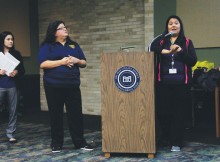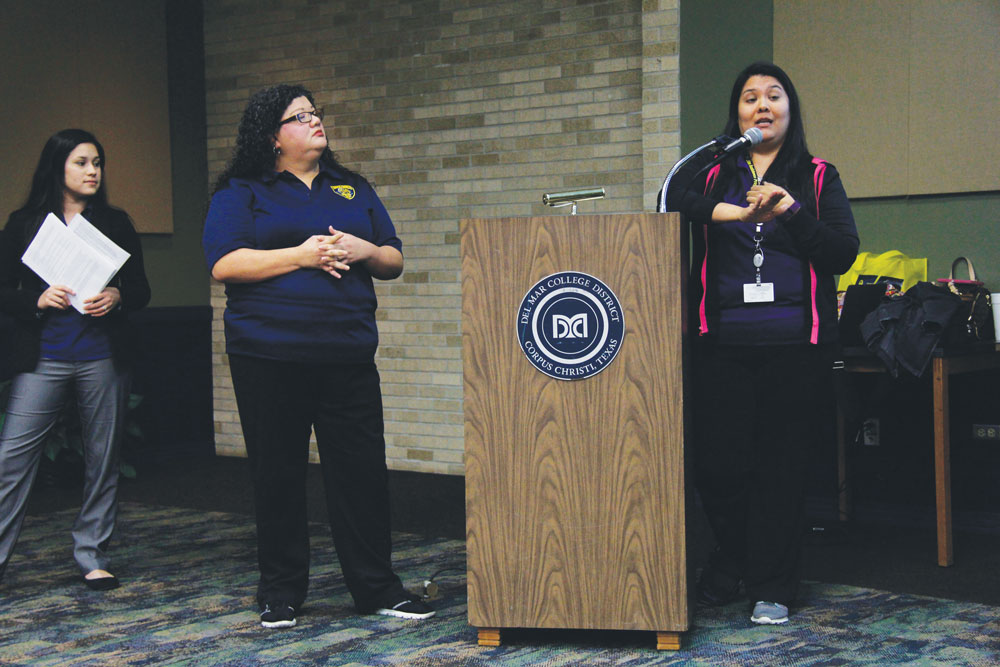You never know who’s watching.
That’s the warning representatives from the Corpus Christi Police Department Victim Assistance Program gave to Del Mar College students on Jan. 27. The event, held in recognition of National Stalker Awareness Month, focused on cyber stalking and how not to be a victim.
“Privacy settings are no good. A lot of the things you know, or think you know, because you are tech savvy, you’re the first ones to come in crying because you said or did something you shouldn’t have,” said Debra Garcia, a victim case manager with the Victim Assistance Program. “Once it’s out there, it’s there. Even if you delete it.”
According to Garcia, the most common victims are harassments from former relationships or in regards to child pornography.
Representatives from the Corpus Christi Police Department Victim Assistance Program raise awareness and provide information on the new laws regarding stalking and victims of stalking.
If someone is being harassed, they need to keep a log of all that is said, including text messages, life threats and any other comments from the harasser.
According to the Bureau of Justice Statistics, an estimated 14 in every 1,000 people 18 and older have been victims to stalking. Approximately one in four stalking victims reported a type of cyberstalking.
“Get off Facebook; delete your account completely,” Garcia said. “Don’t associate with friends you have in common because most of the time … your ‘friends’ are there to be the instigator. … Change your number and don’t give it to anybody.”
Garcia said in some cases, children are involved and communication can’t be prevented. Although the parents must remain in contact for the child, no additional contact needs to occur.
“Your friends and family will protect you. Let them help keep you safe,” said Sarah DeLeon, a victim case manager at the CCPD.
Students who attended the event received information on cyber stalking, how to recognize it and how to remain safe. Important safety measures include changing normal routines, remaining aware, alerting managers, maintaining privacy, developing a safety plan and alerting authorities.
“I’ve never heard of anyone who was stalked aside from the news,” said Princess Pierre, a nursing major at DMC. “But I want to know more about it.”
Sometimes a harassment charge won’t be taken if there is not an imminent threat. If the harasser is threatening a person’s family or home, the police department needs to be alerted so victims can file a report, allowing necessary steps to be made. The Victim Assistance Program offers victims of crime emotional support, guidance and counseling, as well as services to help educate and train people on the processes required by victims of crime and their families.
If you or anyone you know is a victim of stalking, call the non-emergency number for the police department at 361-886-2600 and ask for the telephone reporting unit. You can have an officer go to your house and take a report for you, or you can meet an officer somewhere you’re comfortable to give a report.
Want to know more about the Author?
Follow Cayce on Twitter.







